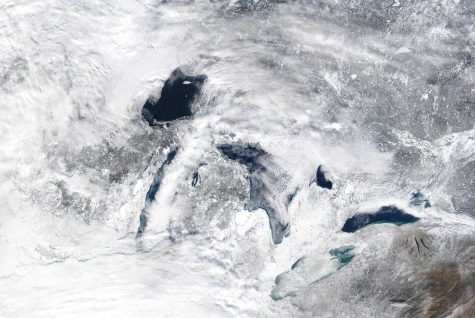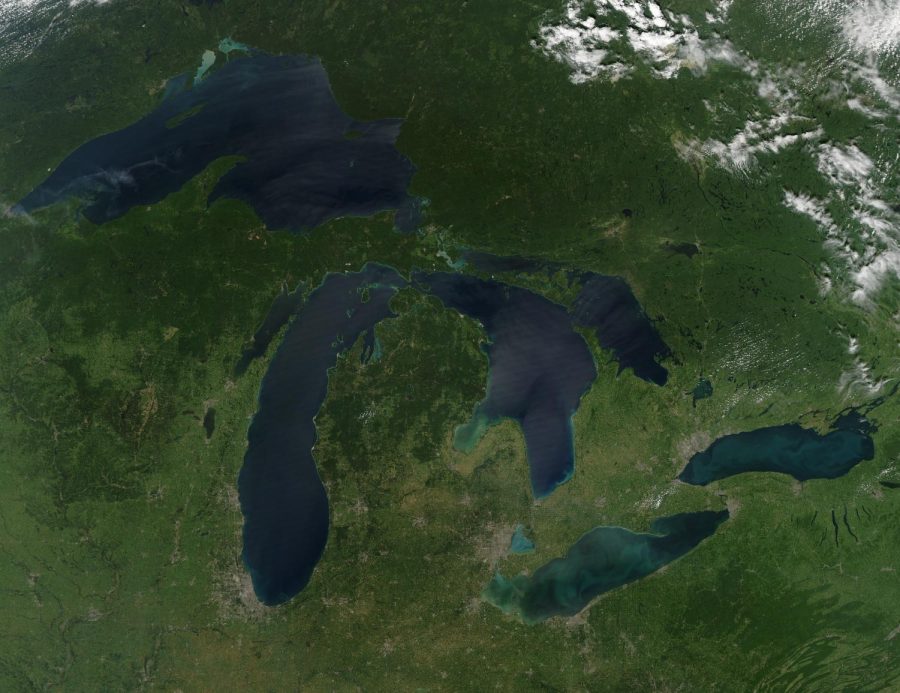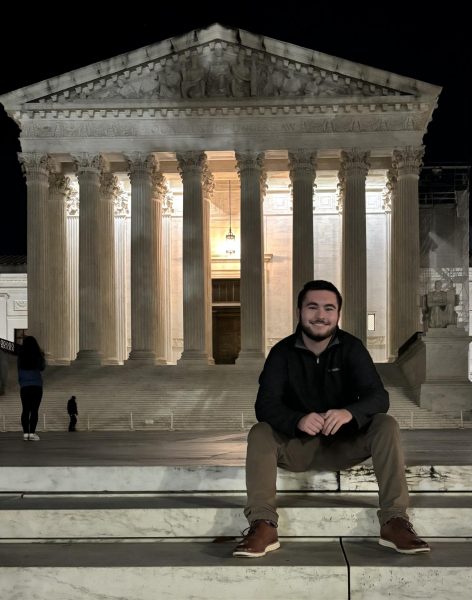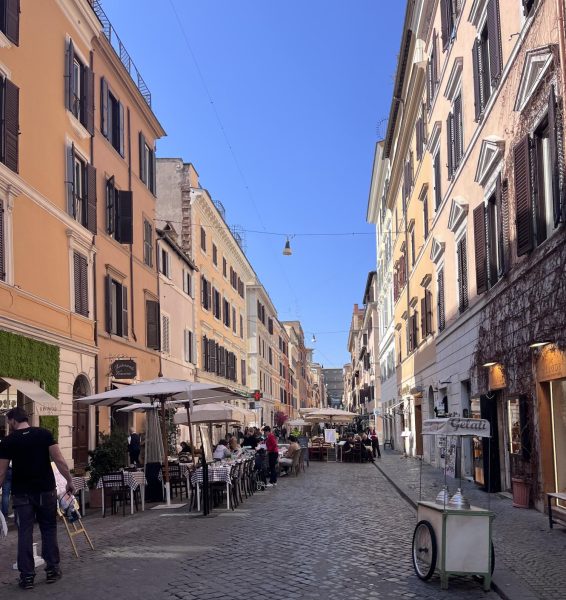Giba’s Claim: The Great Lakes are a climate haven of the future
NASA Goddard Space Flight Center
A satellite view of a cloudless summer day over the Great Lakes region.
As climate change progresses, the Great Lakes region increasingly becomes a haven from the looming climate apocalypse.
Here’s how I think about the reasoning behind the future value of the Lakes: to start, as you read this, some part of the state of California is burning — guaranteed. Smog is a constant, and evacuations are expected. Coastal cities in the west will have to deal with rising water levels as polar ice caps continue to melt (so will everywhere else, of course), making some cities uninhabitable, forcing a migration when water overtakes the streets.
Even this nightmare image doesn’t account for the unpredictable environmental disasters like the recent oil spill off the southern coast of California either, where around 25,000 gallons of oil spilled into the waters off Orange County, just a few miles from Los Angeles, in early October. Each year it seems less and less safe to reside in parts of the west due to ecological disasters.
For the southwest, I think of Texas freezing in a winter storm earlier this year resulting in a few million households without power and tens of people freezing to death in the streets, a city in confusion, unprepared for their coldest temperatures in 50 years.
I think of drought, and how rain sparsely falls in arid climates across the United States, causing rationing already in certain communities. My family in Denver will sometimes come back to Pittsburgh and nearly rejoice at the dependable rain, seeing as they receive so very little of it.
For the south, I think of the perennial threat of hurricanes battering the Gulf of Mexico and cities like New Orleans — Hurricane Ida touched down this year and devastated the city, a city which still hasn’t fully recovered from Hurricane Katrina. And, as the oceans warm, hurricanes are expected to become even more severe.
I think of the east coast with Hurricane Sandy flooding the streets of Manhattan in years past, reporters knee deep in water downtown. The Atlantic’s sea levels are rising too, proving more invasive each year; Ida just this year caused catastrophic flooding in the northeast.
Humanity has been willing to endure such environmental trials to live in these cities long enough to build up civilizations. There are uninhabitable parts of the world, for good reason albeit — perhaps due to a lack of bountiful resources or water or fertile land. Now that such depletion of all three is taking place in some of the most populated parts of the world, these ecological issues will become increasingly more common as climate change continues to rattle our ecosystems and waterways.
What will happen when the effects of these cyclical aspects of nature begin to batter our states and other countries beyond recovery? What will happen when our growing global population is forced to adapt?
Such a speculative scenario has global implications of course: a human retreat inland seems the likely response, and for the United States, such a retreat would likely result in a move toward the Great Lakes region.
Already, climate refugees are being forced to relocate elsewhere in the world — especially in island nations, whose very existence is threatened by rising sea levels — and if our climate continues to turn against us from our own finger on the trigger that is global warming, then it’s fair to predict similar coastal retreats happening in the United States.

Up in the Midwest, in the north, we certainly have our own climate crises separate from coastal woes. A major problem regards the pollution of our Great Lakes and waterways, or the challenges of invasive species and algae blooms. Rust belt cities’ waterways are still recovering from the impacts of overhauled industrial production — the culprits being steel mills, factories and the like — and many are familiar with the event that spurred the founding of the Environmental Protection Agency: the Cuyahoga River catching fire, feeding right into Erie.
Other recent crises include the pollution of the Flint River in Flint, Michigan, connected to the Saginaw River, which connects to Lake Huron. I could continue on, but the point is the Great Lakes are undoubtedly full of their own ecological problems brought on by humanity’s meddling in them.
Growing up in Pittsburgh and spending a lot of my life in the Midwest along with the last four years spent in Cleveland, it’s difficult to notice the effects of climate change directly as compared to say someone living on an island or a nation near to the equator like Honduras, Puerto Rico or the Marshall Islands. However, climate change is happening and will continue to accelerate, save for possible global efforts from the UN’s Glasgow Climate Summit this week. Here in the Midwest, though, we’re lucky that we don’t experience the worst of it.
As freshwater supplies deplete across the world, countries will be looking for ways to access what is left. A professor of mine told us a story about his friend who worked for a water company in South Africa — he had a pool in his backyard. The country had hit an especially hard drought one year, and one day, his friend woke up to realize his home had been burgled. What was missing? The water from the swimming pool.
In our own backyard, we have 21% of the world’s surface freshwater, the second most in the world (behind Lake Baikal in Russia, containing 22-23% of the world’s fresh water). Lake Superior in itself has around 10% of the world’s surface freshwater. The Great Lakes megalopolis is the largest and most populated in North America for a reason, harboring a cradle of civilization around its lakes.
In the future, as freshwater sources deplete (like the Colorado River being sucked dry by the west, for example), the largest lakes of the world I wager will become havens for populations for future climate refugees, those fleeing vulnerable communities on the coast, those lacking fresh water to survive on.
This is something that we residents of the Great Lakes will witness in real time, I imagine. Such an idea does not seem so far-fetched; as we are part of the ecosystem, like an animal seeking refuge and safety, humans too will look to the safest parts of the world, the most water-rich reaches, to flee from climate disaster. Best to plant roots here, then, in anticipation.








